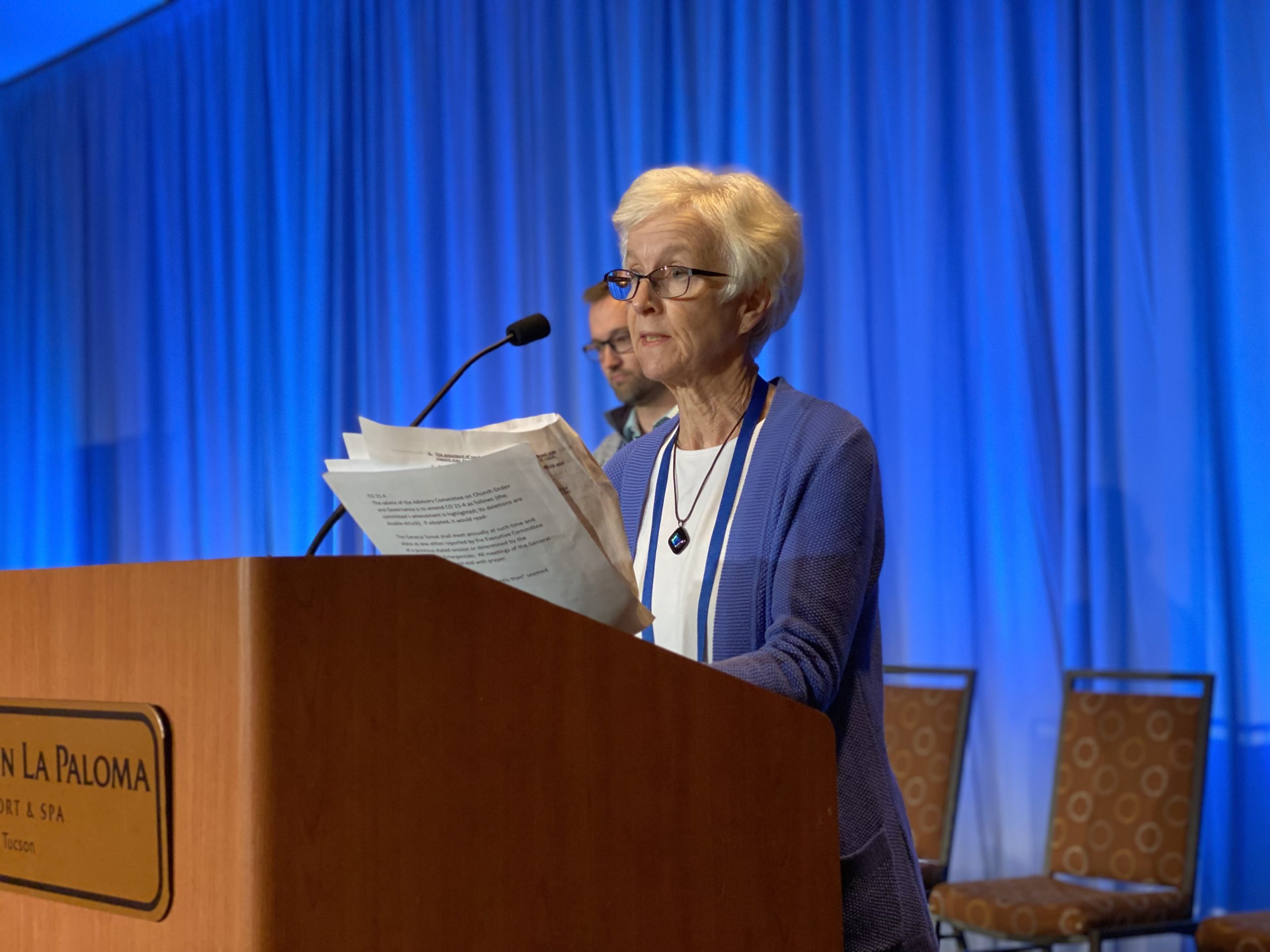Based on a recommendation from the Commission on Church Order (CCO), the General Synod has voted to establish a Committee on Emergencies.
“Understanding the obstacles we encountered as a denomination in the last year because of our inability to gather, the commission worked on a recommendation that would establish some emergency provisions going forward,” wrote the commission in their report to General Synod.
“I hope we never have to use them,” said commission moderator Joshua Scheid when bringing the recommendation before the synod.
In proposing this committee, the CCO gave consideration to appropriate circumstances (what kind of emergencies qualify), composition of the committee (who can act when the General Synod cannot be convened), and specified but limited authority (what authority the committee should have). These three considerations are accounted for in the amendment to the bylaws of the General Synod.
As stated in the amended bylaws:
A Committee on Emergencies shall be convened whenever necessary in response to a disaster or crisis that would prevent the General Synod from meeting in its stated session or disrupt plans to hold a session at a particular venue, such as a fire, natural disaster, or another sudden calamity.
The committee will be composed of the president, vice president, and the immediate past president of General Synod—ex officio and without vote; the president of each classis (or a designated vice president or stated clerk); and the general secretary, also ex officio and without vote.
The Committee on Emergencies will have the authority to “postpone a session of the General Synod and schedule the time and place for the next session, set the amount of the General Synod assessment, act on recommendations offered by the Commission on Nominations, or other actions that may be required for the General Synod to function.”
The Advisory Committee on Church Order and Governance advised the General Synod to adopt the CCO’s recommendation with an amendment that allows action by a two-thirds vote of those present, rather than a two-thirds vote of all classis representatives on the committee. The advisory committee reasoned that “two-thirds of classis representatives should be attainable through electronic means and safeguards fair representation.”
An additional amendment clarified and simplified the process for action during meetings, removing the need to return to classes for their votes.
The bylaws change that includes the Committee on Emergencies—and the re-numbering of subsequent articles—will need to be approved by a subsequent synod.
A second recommendation from the CCO, adopted as amended by the advisory committee (to remove a redundancy), allows for a Committee of Emergencies in the Book of Church Order (BCO). This BCO amendment also clarifies “the requirements for determining stated sessions of the General Synod,” according to the commission.
Having been approved by the 2021 General Synod, this amendment will now go before the classes for approval, requiring at least a two-thirds approval to be successfully passed.





